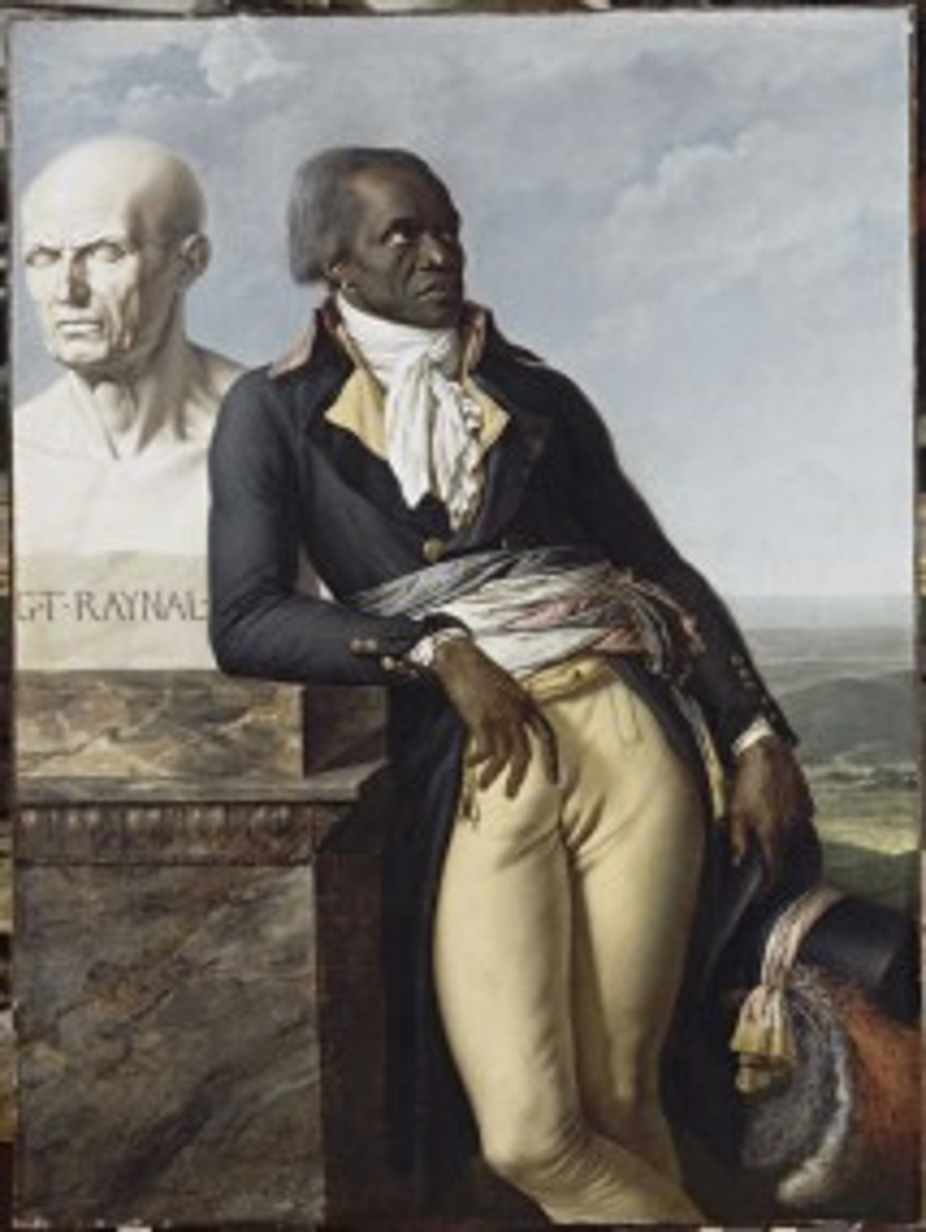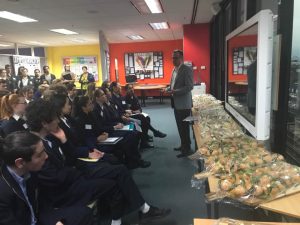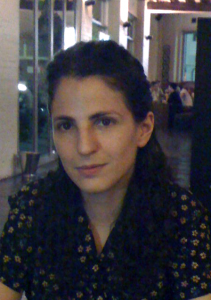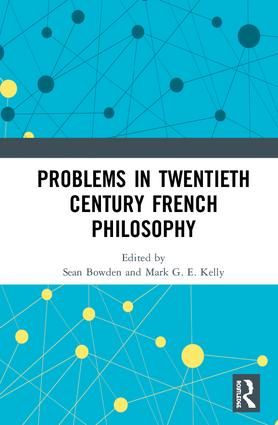Originally a special issue of Angelaki (23.2), Problems in Twentieth Century French Philosophy has now been published in book form by Routledge. Co-edited by Sean Bowden and Mark G.E. Kelly, it features articles by Deakin philosophers Bowden, Matthew Sharpe and Daniela Voss.
Category Archives: Uncategorized
Deakin writers shortlisted for New Philosopher Writers’ Award
Daniel Goldsworthy, associate lecturer in Deakin’s law school, was recently shortlisted twice for New Philosopher Magazine’s Writers’ Award, for articles on the topics of ‘Life‘ and ‘Power.’
Cathy Legg’s new ‘Pragmatism’ entry in the Stanford Encyclopaedia of Philosophy
Pragmatism is a philosophical tradition that – very broadly – understands knowing the world as inseparable from agency within it. This general idea has attracted a remarkably rich and at times contrary range of interpretations
Deakin’s Dr Cathy Legg has just completed a major rewrite of the Stanford Encyclopaedia of Philosophy‘s entry on Pragmatism. The SEP is one of the world’s leading resources for philosophers and it’s a testament to Dr Legg’s expertise and profile to be asked to revise such a high-profile entry.
Leesa Davis on living in time
The past is a reconstruction, the future is an expectation. But really if we take care of the present, in many ways we have time to reflect on the past and to look forward into the future without this stress of a linear idea of time.
For the new year, Deakin Philosophy lecturer Dr Leesa Davis spoke to this. about the nature of time and living in the here-and-now:
Matt Sharpe on Enlightenment critiques of the West

Jean-Baptiste Belley, Deputy of Saint-Domingue and French National Convention member (1793-97) with a bust of Abbé Raynal.
Associate Professor Matthew Sharpe has a timely new piece in The Conversation entitled “Criticism of Western Civilisation isn’t new, it was part of the Enlightenment”:
The duelling sides in today’s cultural wars about “Western civilization” are united in one thing, at least – each is inclined to gloss over the extent to which “Western civilisation” has always been deeply complex and divided.
Read the full article here.
Philosophon + VCE Philosophy Unit 2 Forum
Deakin philosophers were recently involved in two events working with the Philosophy in Schools community:
 On Thursday 30th Patrick Stokes delivered a speech to students at the Victorian Association for Philosophy in Schools (VAPS) Victorian Secondary Schools Philosophon. Patrick and Cathy Legg then helped judge the competition. The standard was incredibly high and we were deeply impressed at the calibre of young philosophers!
On Thursday 30th Patrick Stokes delivered a speech to students at the Victorian Association for Philosophy in Schools (VAPS) Victorian Secondary Schools Philosophon. Patrick and Cathy Legg then helped judge the competition. The standard was incredibly high and we were deeply impressed at the calibre of young philosophers!
On Friday 31st August Deakin hosted the first ever VCE Philosophy Unit 2 [Year 11] forum for teachers and students, in association with VAPS. This was a great success and we’re looking forward to expanding the event in future.
Deakin philosophers in NDPR
Deakin Philosophy’s Cathy Legg and Jack Reynolds have just had a review discussion of Mark Eli Kalderon’s book Sympathy in Perception published in Notre Dame Philosophical Review:
Kalderon may be a philosopher who lives by the Rylean injunction that he would not be part of any ‘ism’ or philosophical group that might claim him. The reviewers found the corresponding broad-mindedness refreshing in these days of small and often rather ‘sealed-in’ philosophical communities and debates.
Read the full review here.
George Duke wins essay prize
 We’re delighted to say that Associate Professor George Duke has won the Federal Law Review’s 2018 Zines Prize for Excellence in Legal Research, for his essay “Popular Sovereignty and the Nationhood Power.” Congratulations, George!
We’re delighted to say that Associate Professor George Duke has won the Federal Law Review’s 2018 Zines Prize for Excellence in Legal Research, for his essay “Popular Sovereignty and the Nationhood Power.” Congratulations, George!
Blog from Talia Morag: “Imaginative Associations: The Return of the Repressed?”
 Over at The Junkyard, Deakin’s Alfred Deakin Postdoctoral Fellow Dr Talia Morag writes:
Over at The Junkyard, Deakin’s Alfred Deakin Postdoctoral Fellow Dr Talia Morag writes:
Philosophers mobilize the term “imagination” for many explanatory tasks, including empathy, mindreading, counterfactual reasoning, and pretending. The recent flourishing of the study of the imagination favors the active exercise of imaginative capacity. When Amy Kind declares this to be the “primary sense” of the imagination, she reflects a contemporary trend (Kind 2013, 145). Kind contrasts this active sense to occasions where ideas “pop” into one’s mind, which she identifies with what Currie and Ravenscroft call “the creative imagination”, that is, “put[ting] together ideas in a way that defies expectation or convention” (Currie & Ravenscroft, 2002, 9). I prefer to call this associative capacity “the passive imagination.”
Click here to read the rest of the blog post.
Liberal as Methodological Naturalism
Dr Cathy Legg will be giving a special presentation at the University of Hildesheim, Germany, Monday 11th June 2018:
Liberal as Methodological Naturalism
Many philosophers hold that Philosophy should learn at least something from the spectacular success of the natural sciences since the 17th century. Yet what exactly should be learned, and how after this learning Philosophy would continue to be practiced, is still contested. Disappointment with the rich suite of ‘human things’ dismissed by philosophers seeking to be ‘more scientific’ has recently produced influential calls for a liberal naturalism. Thus de Caro and Voltolini urge, “there may be philosophically legitimate entities that are… ineliminable and…not only irreducible to scientifically accountable entities but also ontologically independent from them” (2010, p. 70) .
Whilst applauding such broad-mindedness, as a philosopher not a scientist I seek a logical not an ontological solution to this problem. I draw on Charles Peirce’s pragmatist semiotics to reconceive ‘objectivity’ in a more open-minded and fallibilist manner than standard naturalisms, whereby the true key to science’s success lies in an indexical normative pragmatics which does not represent the world so much as provide a guiding function for a flow of experiences .At this point, the key question of naturalism concerning a given discourse becomes merely: Is what you’re talking about a reflection of your own idiosyncracies – or can the object itself guide your thoughts about it – in other words, does it have a nature?
BIO
Catherine Legg is Senior Lecturer in Philosophy at Deakin University(Melbourne, Australia). She completed her PhD at Australian National University with a thesis on the implications of Charles Peirce’s three fundamental categories for realism. Her research builds bridges between Peirce’s thought and mainstream analytic philosophy regarding philosophical methodology, truth,meaning, and founding logic in diagrammatic reasoning. She also has research interests in computer science in the area of formal ontology.
